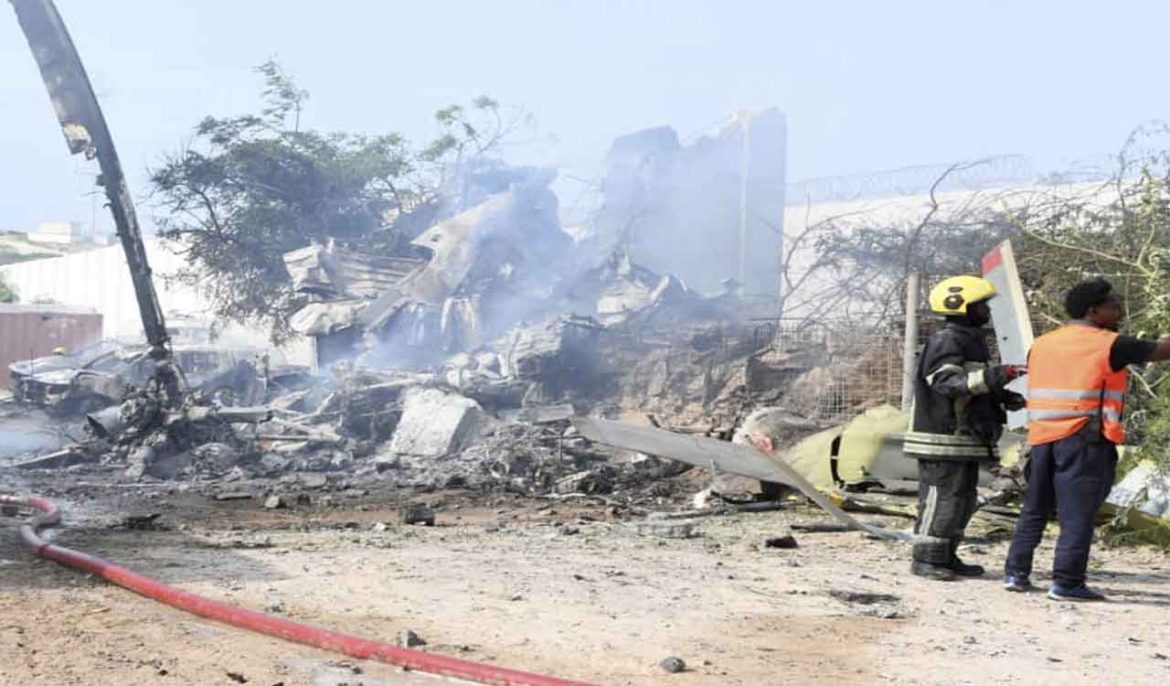A helicopter operated under the African Union Support and Stabilization Mission in Somalia (AUSSOM) has crashed at Aden Abdulle International Airport in Mogadishu, killing three people and injuring others. The incident occurred shortly after the aircraft, which originated from the Ugandan Air Force, took off from Baledogle military base, a key military facility west of Mogadishu.
According to an official statement from AUSSOM, there were eight personnel on board the helicopter at the time of the crash. “Three of the passengers were immediately rescued from the wreckage and rushed to a medical facility in critical condition,” the statement read. Emergency services responded swiftly, but three lives were lost on the scene.
Eyewitnesses at the airport reported hearing a loud noise followed by the sight of thick smoke and flames rising from the crash site. A large fire broke out shortly after impact, prompting airport authorities to temporarily halt operations. Both domestic and international flights were diverted or delayed, although normal operations resumed within a few hours.
The helicopter was part of a routine mission and was not engaged in any active combat or high-risk manoeuvre at the time, according to a preliminary update from AUSSOM officials. Details on the nationalities and ranks of the victims have not yet been released.
Airport authorities, in coordination with AUSSOM and Somali government officials, have launched a joint investigation to determine the cause of the crash. Investigators are expected to review flight data, mechanical records, and testimonies from surviving crew members.
The Ugandan People’s Defence Force (UPDF), whose aircraft was involved, has confirmed the loss and expressed condolences to the families of the victims. Uganda remains one of the largest troop contributors to the African Union mission in Somalia, which has undergone structural and operational changes in recent years, evolving from AMISOM (African Union Mission in Somalia) into AUSSOM in 2024.
This incident raises fresh concerns over aviation safety and logistical coordination within military support operations in Somalia. The region remains volatile, with African Union forces playing a crucial role in stabilisation efforts, particularly in areas still threatened by the militant group al-Shabaab.
Security analysts noted that while crashes involving military helicopters are not uncommon in Somalia due to harsh terrain, mechanical issues, and operational strain, each loss poses a setback to regional security efforts and morale among partner forces.
The Somali Civil Aviation Authority has assured the public that the crash site has been cleared and the airport is safe for all flight operations. AUSSOM has also committed to full transparency during the investigation and pledged to update the public as more facts become available.
This latest development has drawn messages of solidarity from various African Union member states and diplomatic partners, many of whom continue to support Somalia’s long road to peace and institutional rebuilding.
